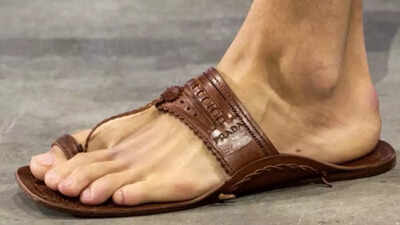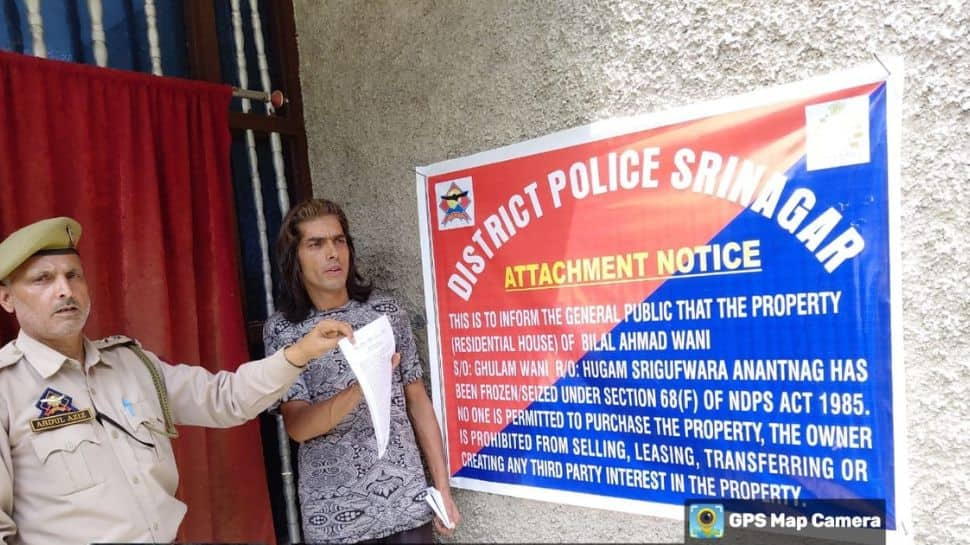Prada bows to massive online backlash! Italian brand forced to credit Kolhapuri chappal designs; legal options being mulled in India

Prada, the Italian high-end fashion brand, has confirmed that their upcoming Spring Summer 2026 menswear line incorporated designs influenced by Kolhapuri chappals, addressing the controversy that caused significant displeasure in India and sparked discussions about cultural appropriation. The leather sandal with open toes presented by Prada shows striking similarities to the heritage leather footwear that artisans have crafted for generations in Maharashtra and Karnataka.The reaction comes following social media criticism and official pressure regarding the failure to credit Indian craftsmen and cultural legacy of the design at the Milan event. Responding to ET’s enquiry, the organisation emphasised its dedication to celebrating artisanal expertise, legacy and design customs.The company reportedly said: “Prada acknowledges that sandals inspired by traditional Indian footwear made in specific districts in Maharashtra and Karnataka, India, were featured in its Men’s 2026 Spring Summer show in Milan. We are committed to responsible design practices, fostering cultural engagement, and opening a dialogue for a meaningful exchange with local Indian artisan communities as we have done in the past in other collections to ensure the rightful recognition of their craft. We are in contact with the Maharashtra Chamber of Commerce, Industry &Agriculture on this topic.”
Legal Action Against Prada?
According to the financial daily’s report, the Sant Rohidas Leather Industries & Charmakar Development Corporation (LIDCOM), which shares geographical indication (GI) certification for Kolhapuri chappals with Karnataka’s LIDKAR, is considering legal measures.The Kolhapuri chappals received GI designation on December 11, 2018, including eight districts—four each in Maharashtra and Karnataka. The craft industry’s substantial size contrasts with merely 95 artisans registered as authorised GI users. “There is a lack of awareness about what GI registration offers,” noted an official from the state’s industries department.Also Read | Pulse, the Re 1 candy, now a multi-crore revenue generator! How DS Group aims to make it a Rs 1,000 crore brandAlthough registered proprietors (LIDCOM and LIDKAR) and authorised users have legal rights to initiate proceedings within India’s borders, GI marks currently lack international legal safeguards.Maharashtra’s industry department has engaged in talks with LIDCOM, according to industry secretary P Anbalagan. A senior LIDCOM representative was quoted in the report as saying, “We are in the process of making some decisions, and legal recourse will certainly be involved.” The official added, “Since the company is based in Italy, we are evaluating the legal options available in this situation. If required, LIDCOM will approach the appropriate channel through India’s ministry of commerce.”A Maharashtra government official said: “Prima facie, a vendor should not be using GI-registered name, logo, or invoicing product under GI identity”.Legal specialists indicate that India’s Geographical Indication regulations safeguard registered products from unauthorised commercial usage of their names or implied origins, but not from design imitation. IP lawyer Priyanka Khimani says that proprietors can enhance protection by securing trademark registration for their name/logo in foreign jurisdictions.Also Read | ‘Biggest risk of my life’: Mukesh Ambani says even if Reliance Jio would have failed, it would have been ‘worth it’; told board ‘in worst case…’“Borrowing the style without using the GI name in trade does not necessarily violate GI provisions,” Khimani told ET. “Unless Prada markets or sells these sandals using the word ‘Kolhapuri’ or implies a link to Kolhapur’s craftsmanship, there is no legal recourse.”Nevertheless, Khimani highlighted the ethical considerations. “There is a responsibility on international fashion houses to acknowledge the cultural heritage they borrow from. It would be meaningful for both brands and artisans if there was transparent commercial collaboration and due credit.”Organisations such as Nabard provide assistance in post-GI registration activities, including artisan enrolment and marketing seminars, whilst state-level implementation can facilitate these results. Khimani suggests that GI-registered proprietors could enhance their global protection by registering associated marks and names as trademarks internationally. For instance, the Tea Board has secured trademark/certification trademark registrations for marks related to ‘Darjeeling Tea’ in various nations.







